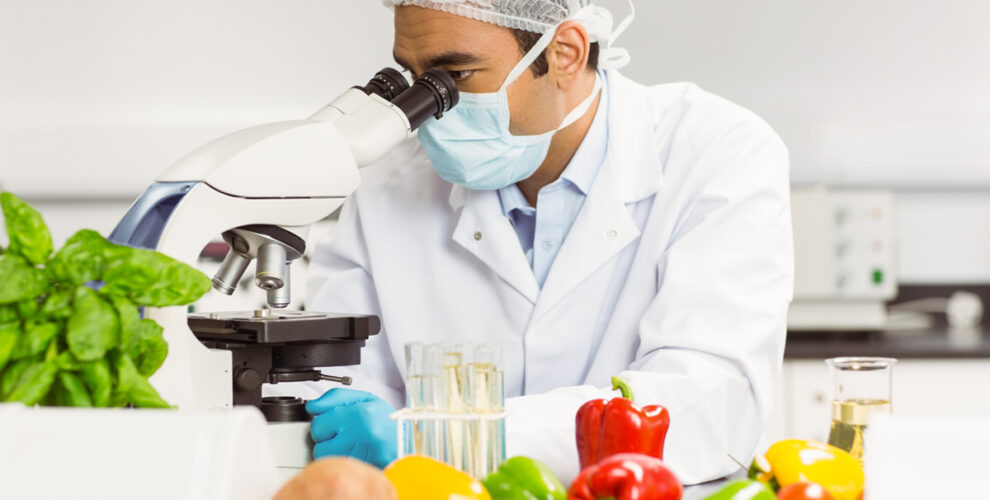Food technology and food science are often combined, but this is not the case. To develop the appropriate set of tools for the presentation, distribution, and packaging of food, food technologists make use of the data or research provided by food scientists. Cans, frozen foods, snacks, and any other type of ready-to-eat or time-saving meal for human nutrition are the result of the combined efforts of food scientists and technologists. Let’s discuss the challenges and technologies in this field.
What is the Scope of Food Engineering?
Food technology is any kind of technology that changes how food is sold, made, and distributed, or that makes food production, distribution, and supply better.
Food technology graduates and postgraduates of top colleges in Coimbatore and universities in India can work in a variety of fields, including hospitals; restaurants; businesses that process food; catering businesses; firms that manufacture soft drinks; mills for spices, grains, and rice; organisations for quality control; research facilities for food; and the packaging sector.
Challenges for the Future of Food:
- Climate change, a lack of energy and water, pollution in the environment, shifting global population demographics, food safety, and growing disease pandemics all put extra stress on the planet’s food system, which is already delicately balanced with its ecosystem.
- If we want to make big changes to the food supply, nutritional status, and health, we need to look for new ways to improve the whole food chain, including food choices and eating habits.
- Food safety is another area of research that is getting more attention. Particularly concerning is the presence of chemical contaminants in the food chain, such as PCB and dieldrin.
- Due to the versatile role that sodium chloride plays in food functionality, palatability, and health, a reduction in sodium intake remains particularly challenging. On the other hand, efforts to reduce the intake of fat and cholesterol have been more successful. This is due to technological advancements that have enabled the creation of products that satisfy the preferences and value expectations of consumers.
It is expected that the food industry is a vast field where there is a requirement for graduates from the top biotechnology colleges in India to make further research and advancements. These dangers, whether normal or man-made, commit established researchers to proactively look for new advancements in food and nourishment to guarantee worldwide food maintainability and food security later on.
Technology Utilized for the Future of Food in Areas Like
- Technology for Agriculture
Startups use technologies like sensors, drones, and software that take the place of manual labour to improve crop quality. Understanding how plants and fungi grow and how to grow them successfully is made possible by AI and machine learning. Fertilizer management, automated machinery, soil sensors, and water solutions are additional components of ag tech.
- Service:
IoT technology is also being used by restaurants to manage supply orders and track ingredients from the time they are ordered to when they arrive. Restaurant owners can monitor the temperature of delivery trucks and storeroom shelves with the help of sensors. They can observe the entire journey to ensure compliance with all safety regulations.
Meat temperature sensors and set-and-forget technology in smart appliances make it easier to cook, allowing staff to make the most of their time while waiting for food to cook.
It is a fact that most of the students who wish to be entrepreneurs choose food as a service after completing their B. Tech food technology at colleges in Coimbatore. So, it is necessary for them to make use of these technologies.
- Delivery:
Due to disruptions in the supply chain, businesses face the challenge of transporting food. Technology is required to track and guarantee the safe packaging and delivery of food in response to the rising demand for direct consumer delivery options like meal kits, restaurant and grocery delivery, and meal kits.
- Safety:
Technology can help restaurants, grocery stores, and other food providers keep track of how long food will last. Some businesses are using blockchain technology to regulate the distribution of their supplies. This includes using technology to look for recalls and trace ingredients. Home food preservation methods like pickling, fermenting, dehydrating, freezing, curing, canning, and recycling are expected to become more popular.
- Management of waste:
In the food industry, technology is assisting in the reduction of waste and the enhancement of sustainability. LeanPath is a piece of software, smart scales, and camera technology that monitors and calculates food waste in kitchens. The top arts and science colleges in India make use of this technology, which helps educate students about waste management.
Secondly, biopolymer-based packaging, which can also help extend a product’s shelf life, is becoming increasingly popular among manufacturers. Smart sensors and drones can monitor display shelves and take real-time inventory to monitor product movement and shelf life.
To Summarize:
The fact that food scientists and technologists who graduate from the best biotechnology colleges in India will always be in demand as long as the food is used by living things is the best part of this field. There are many job opportunities in the growing field of food science and technology. You can work as a food scientist, food technologist, or quality assurance officer with a degree in food science and technology.


